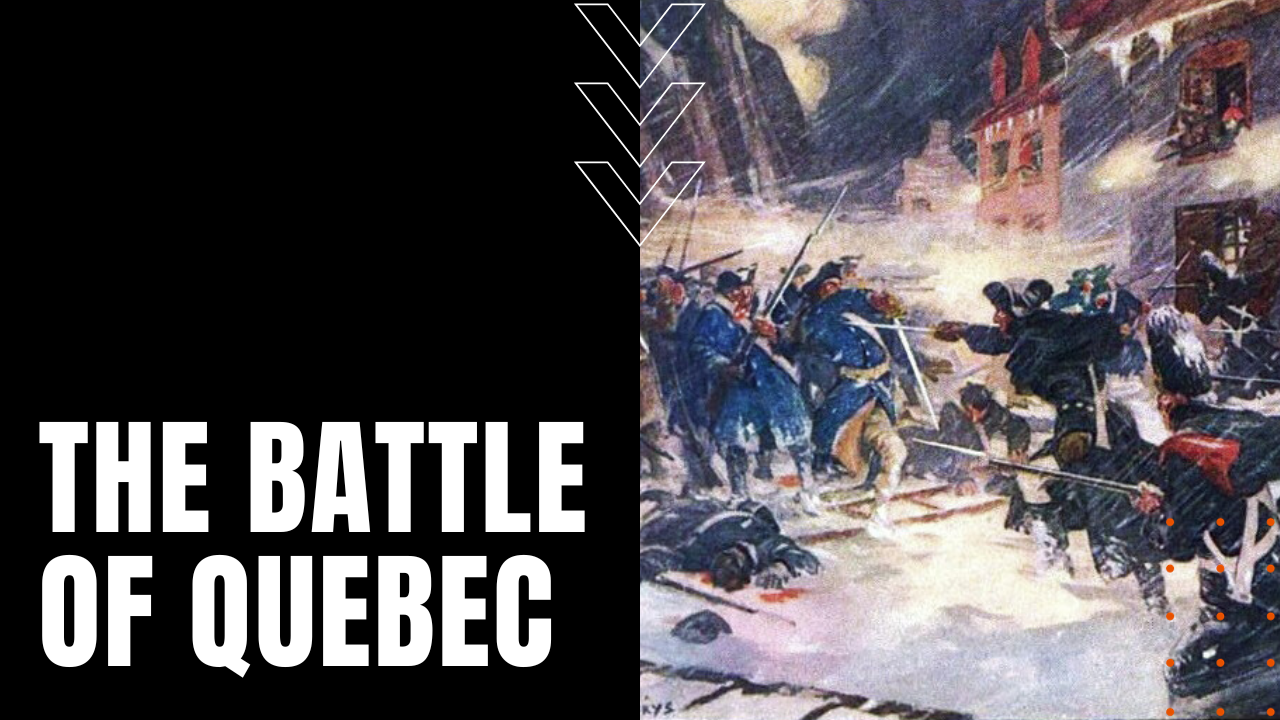The Battle of Quebec

During the Seven Years’ War of 1756 to 1763, fought on three continents between France and Britain and their respective allied nations, while France was preoccupied with hostilities in Europe, Britain focused its efforts on French colonies in the New World, in the hope of unseating France as a commercial rival. Appointed commander after capturing Fort Louisbourg on Cape Breton Island, on June 27th, 1759, British General James Wolfe landed some 11,000 men on the southern banks of the St. Lawrence River, in several positions across from Quebec City in present-day Canada—then known as New France—closing in on a French force of some 18,000 men, including indigenous warriors of the Seven Nations.
A French Retreat
Forcing a French retreat from Beauport on July 31st, Wolfe sent Brigadier General James Murray against a French supply depot and ships some 40 miles upriver from Quebec, effectively cutting off supplies to the fortified city, at the same time cutting off all French retreat and re-fortification options from Montreal. Landing before dawn on September 13th, 4,500 light infantrymen led by Colonel William Howe, scrambled up the cliffs at L’Anse-au-Foulon, subduing an advance guard of French troops before crossing the Plains of Abraham toward Quebec.
Sunrise Attack
Shortly after sunrise, indigenous marksmen laid down sporadic fire against the advancing British, until lesser-trained French forces under the command of Marquis de Montcalm fired upon one another from a mere 120 feet apart, taking the life of General Wolfe, while Montcalm would succumb to his own wounds the following day. After several more key British officers were felled in battle, British Brigadier General George Townshend solidified command, while a French relief force under Colonel Bougainville called a retreat, giving the British a consolidated position on the Plains of Abraham.
Another French Retreat
After the French army retreated yet again under the cover of darkness, the British lay siege to Quebec City, forcing France to surrender the city on September 18th, after French military leaders signed Articles of Capitulation. The Battle of Quebec—also known as the Battle of the Plains of Abraham—witnessed British casualties of 58 killed and 600 wounded, while the French bore loses of 166 killed, 600 wounded and 350 captured, and while the war for New France would continue until the signing of the Treaty of Paris on February 1st, 1763—obliging France to hand Canada over to Great Britain—the Battle of Quebec proved to be a critical turning point in Britain’s ongoing push to wrest the French from the New World.
